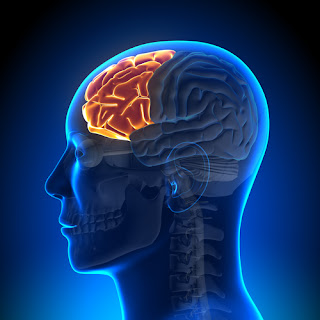Deep Structures of the Brain
Pituitary Gland: Lies in a small pocket of bone at the skull base called the sella turcica. It is connected to the hypothalamus by the pituitary stalk. This gland is known as the 'master gland'. It controls endocrine glands in the body. It secretes hormones that have a big role in growth and sexual development.
Hypothalamus: Master control of the autonomic system and located in the floor of the third ventricle. In charge of regulating hormones, blood pressure, body temperature and emotions. This gland also controls behavior like thirst, hunger, sleep, and sexual response
Pineal Gland: Located behind the third ventricle. Helps to regulate the body's internal clock and circadian rhythms by secreting melatonin.
Thalamus: Relay station for all that comes and goes to the cortex. Plays a role in pain sensation, attention, alertness, and memory.
Basal Ganglia: Includes the caudate, putamen, and globus pallidus. These nuclei work with the cerebellum to coordinate fine movements like fingertip movements.
Limbic System: Center for emotions, learning, and memory. Included in this are the cingulate gyri, hypothalamus, amygdala, and hippocampus.
Hypothalamus: Master control of the autonomic system and located in the floor of the third ventricle. In charge of regulating hormones, blood pressure, body temperature and emotions. This gland also controls behavior like thirst, hunger, sleep, and sexual response
Pineal Gland: Located behind the third ventricle. Helps to regulate the body's internal clock and circadian rhythms by secreting melatonin.
Thalamus: Relay station for all that comes and goes to the cortex. Plays a role in pain sensation, attention, alertness, and memory.
Basal Ganglia: Includes the caudate, putamen, and globus pallidus. These nuclei work with the cerebellum to coordinate fine movements like fingertip movements.
Limbic System: Center for emotions, learning, and memory. Included in this are the cingulate gyri, hypothalamus, amygdala, and hippocampus.







Comments
Post a Comment